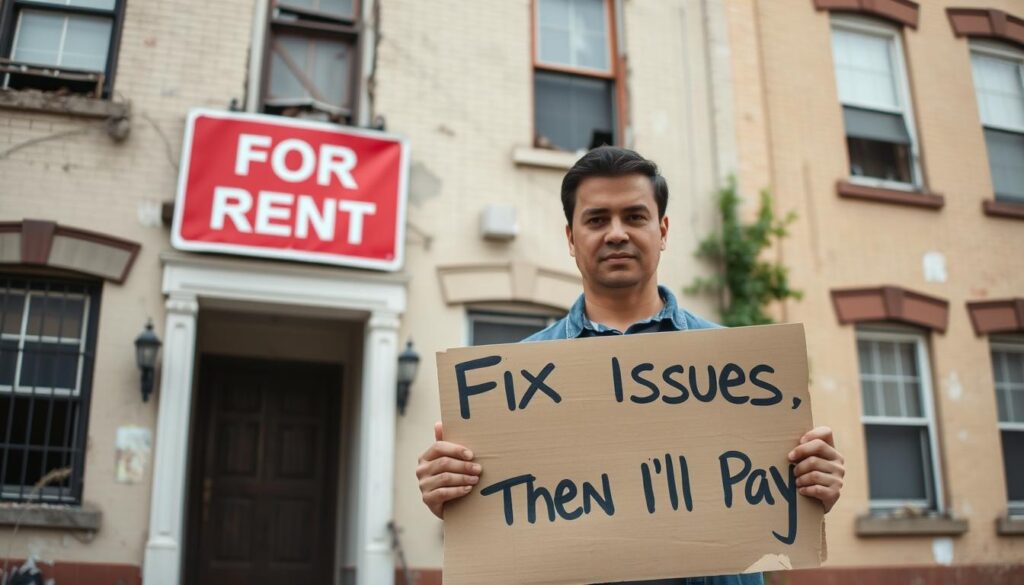You’re looking for a new place to call home and you think you’ve found the perfect apartment. The rent is affordable, the location is great, and it comes with all the amenities you want. But before you sign on the dotted line, there are a few things you need to look out for—namely, lease loopholes.
Lease loopholes are conditions or clauses in a lease agreement that can be interpreted in favor of the landlord. And while some of these clauses may be completely legal, they can still put tenants at an unfair disadvantage. So, how can you spot a lease loophole before it’s too late?
- Make sure the lease agreement is in writing.
While it’s not legally required for leases to be in writing in all states, it’s still a good idea to get everything down in black and white. That way, there’s no confusion about what the landlord and tenant have agreed to. Plus, if there is a disagreement later on, having a written lease makes it easier to resolve the issue. But what exactly should be included in a lease? The answer may vary depending on your state’s laws, but there are some basics that are typically included. For example, most leases will specify how much rent is due and when it’s due. They may also include information about the property management services that are included in the rent price. By clearly specifying all of these details in a written lease, you can help avoid misunderstandings and complications down the road.
- Read the fine print carefully.
Leases are usually pretty long, and filled with legal jargon that can be difficult to understand. But it’s important that you take the time to read through the whole agreement carefully before signing anything. That way, you can be sure that you understand all of the terms and conditions—including any potential loopholes—before agreeing to them.
If you come across something that you don’t understand or that doesn’t seem fair, ask your landlord to explain it or have a lawyer take a look at the agreement before you sign anything. Property management companies offer a variety of services, including help with leases. If you’re having trouble understanding your lease, or if you want someone to negotiate on your behalf, property management services can be a big help. Paying rent is one of the most important things you can do as a tenant, and making sure that your lease is fair is an important part of that.
- Know your rights as a tenant.
When it comes to renting property, it’s important to know your rights as a tenant. Different states have different laws regarding tenants’ rights, so it’s important that you know what those laws are in your state before signing a lease agreement. For example, some states require landlords to make repairs in a timely manner if there are issues with the unit that affect the tenants’ health or safety. Other states have laws that protect victims of domestic violence by allowing them to break their leases early if they provide documentation from law enforcement or a doctor showing that they’re in danger if they stay in the unit. Familiarizing yourself with your state’s tenant laws will help you avoid any surprises down the road and ensure that you’re treated fairly by your landlord.
As a tenant, it’s important to be aware of your rights and responsibilities. By familiarizing yourself with the ins and outs of tenancy law, you can be sure that your landlord is playing by the rules. And if you suspect that they’re not, you can reach out to a lawyer or your local housing authority for help. Knowing your rights also allows you to take advantage of any loophole in your agreement that would benefit you, such as a clause that allows you to withhold rent if the property isn’t well-maintained. As they say, knowledge is power. So arm yourself with the knowledge of your rights as a tenant, and you’ll be sure to have a harmonious relationship with your landlord.
- Hire a property manager.
Looking for a new place to live can be overwhelming, especially if you’re not familiar with the ins and outs of leasing an apartment. If you’re not sure you have the time or energy to go through the entire lease agreement and make sure it’s fair, consider hiring a property manager. Property managers can help you find an apartment that meets your needs and budget and make sure all of the paperwork is in order. They also know about local tenant rights and can help you identify any potentially unfair clauses in your lease agreement. In the end, hiring a property manager may just be the best way to ensure that you have a positive experience renting an apartment.
- Pay your rent on time.
As any experienced renter knows, there are a lot of things that can go wrong when you’re living in someone else’s property. From leaky faucets to noisy neighbors, there are plenty of potential problems that can cause headaches for both tenants and landlords. However, one of the best ways to avoid problems is to make sure that you pay your rent on time and follow all of the rules outlined in your lease agreement. By doing so, you can help to build a good relationship with your landlord and make it less likely that they’ll take advantage of any clauses in your contract. Plus, paying rent on time is simply good property management etiquette! So if you want to avoid any potential leasing pitfalls, make sure you’re always up-to-date on your rent payments.
- Keep records of everything.
No matter what kind of property management services you’re using, it’s always a good idea to keep detailed records of your rental payments and any communication between you and your landlord. That way, if there is ever an issue or dispute over the terms of the agreement, you’ll have all the documentation you need to prove that you were following the rules. Paying rent on time and in full is one of the most important things you can do as a tenant, so be sure to keep track of those payments! Similarly, if there are any issues with the property that need to be addressed, make sure to get in touch with your landlord right away. By staying on top of these things, you can help avoid any unnecessary headaches down the road.
- Don’t be afraid to negotiate.
One of the most important things to remember when signing a lease is that it is a binding contract. This means that, as the tenant, you are responsible for adhering to the terms of the agreement. This includes paying rent on time, following any rules and regulations set forth by the landlord, and taking good care of the property. In return, the landlord agrees to provide you with a safe and comfortable place to live. Of course, there may be times when you need to make changes to the lease or have questions about something in the agreement. If this happens, don’t be afraid to reach out to your landlord. Most property management professionals are happy to work with tenants so that everyone is happy with the arrangement. After all, it’s in their best interest to keep tenants happy and stress-free! So, if you have any questions or concerns about your lease, don’t hesitate to reach out to your landlord for clarification.
- Don’t sign anything you don’t understand.
Lease agreements can be complex, and it’s important to make sure you understand everything before signing. If there’s something you don’t understand, ask your landlord to clarify or have a lawyer review the agreement. Taking the time to read through the agreement and make sure it’s fair before signing will help you avoid any lease loopholes down the road.Property management companies can provide a number of services, including collecting rent, maintaining the property, and dealing with tenant issues. When choosing a property management company, it’s important to research the company thoroughly and make sure they’re reputable. You should also get a written estimate of all the fees involved so there are no surprises down the road. By taking the time to do your homework upfront, you can avoid problems later on.
- Get everything in writing.
When it comes to property management, one thing that’s important to keep in mind is that everything should be written down. If your landlord agrees to something verbally, it’s important to get it in writing so that both parties are held accountable and there is proof of the agreement. This will help protect you from any lease loopholes and make sure you’re not taken advantage of. Additionally, it’s worth mentioning that when it comes to paying rent, most property management services will require that you do so in writing. This is typically done via check or money order, and you’ll usually have to include your unit number or other identifying information so that the payment can be properly processed. So if you’re ever unsure about how or when you need to pay rent, just ask your property management company for clarification and they’ll be happy to help.
Now that you know how to spot a lease loophole, take the time to read through your agreement before signing it. That way, you can rest assured that you’ve found the perfect place to call home without worrying about any hidden clauses in the lease. Good luck!
Tags:
lease,lease agreement,lease option agreements,lease agreement law,residential lease agreement,lease agreement for rental house,leasehold, lease agreement,rental agreement,lease agreement for rental house,residential lease agreement,lease agreement vs rental agreement,tenant lease agreement,rental property lease agreement,lease,month to month rental lease agreement,landlord tenant lease agreement,landlord lease agreement,landlord tenant lease agreement form,rent agreement,rental property lease agreement northern virginia,lease agreement form,rental lease agreement,lease agreements






